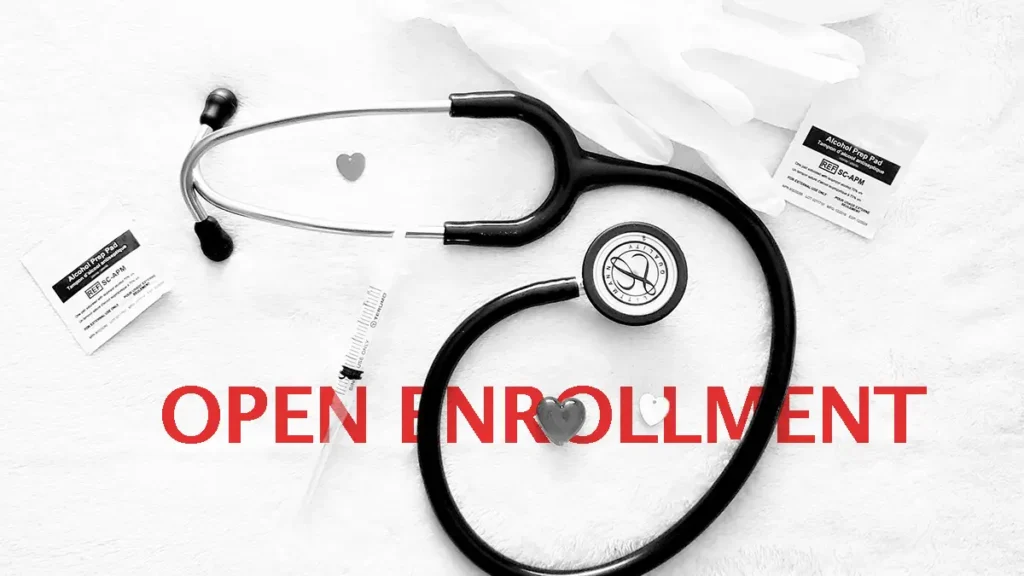Entering open enrollment season for health coverage can make self-employed individuals feel nervous.
This period is crucial for those looking to purchase personal or family insurance, as it might be the only opportunity for 2024, except if they are relocating, marrying, getting divorced, or having a child. Thus, you must stay attentive and act promptly during these upcoming weeks.
Anthony Lopez, the vice president of individual, family, and small business plans at eHealth, emphasized that the nationwide open enrollment period is the prime opportunity for most individuals.
During open enrollment time, people can carefully assess their choices and sign up for a new plan. Lopez shared this insight in an email.
Where to look out for information?
Choosing health insurance without the assistance of a human resources department can be overwhelming.
Freelancers, consultants, independent contractors, and others working for themselves can explore and sign up for adaptable, high-quality health insurance at www.healthcare.gov.
This applies whether they opt for coverage through the federal government or their state depending on their residence.
Open enrollment deadlines are coming, stay on top
Act swiftly, as many states establish a December 15 deadline for coverage starting on January 1, advised Alexa Irish, co-chief executive of Catch.
Additionally, ensure you pay your initial month’s premium before the designated healthcare start date, or you risk being without coverage. “If you miss those deadlines, there’s no wiggle room,” cautioned Laura Speyer, co-CEO of Catch.
If you were already enrolled in a plan last year, you have until December 15 to make changes for coverage starting on January 1.
If you take no action, automatic re-enrollment in last year’s marketplace plan will occur.
Despite assumptions about eligibility, it’s crucial for individuals to explore their options, emphasized Alexa Irish.
In fact, data from the Centers for Medicare & Medicaid Services reveals that in February 2023, 91% of total marketplace enrollees benefited from an advance premium tax credit.
This credit reduces their monthly health insurance payments.
Explore potential savings options
Explore potential savings by considering your income and household size. Credits and savings are accessible, and determined by your financial situation. It’s smart to check for savings options annually.
Deciding on a healthcare plan, whether it’s your initial enrollment or a renewal decision, is akin to choosing employer-provided health insurance.
To make an informed choice, assess the needs of your family members and the purposes of coverage.
Consider factors like coverage options, costs, copays, prescription drugs, inclusion of your doctors, and out-of-pocket maximums.
This thoughtful analysis is crucial, whether you’re a first-timer or contemplating a switch.
Small business plans, unlike individual ones, have no open enrollment restrictions.
According to Lopez, starting with an individual plan now allows a smooth transition to a group plan by mid-2024, providing health benefits for growing teams.
This flexible approach ensures adaptable healthcare coverage as the business evolves. Entrepreneurs looking to expand their self-employed ventures can benefit from this.
The expense fluctuates based on your selected plan, the covered individuals, and the subsidies you qualify for.
To give you an idea, in February 2023, the typical monthly premium before tax subsidies stood at $604.78.
However, after factoring in tax subsidies, the average monthly amount paid by consumers dropped significantly to $123.69, as reported by the Centers for Medicare & Medicaid Services.
If you’re self-employed, there’s a chance you could qualify for a cost-sharing reduction, which trims the expenses for deductibles, copayments, and coinsurance.
Discovering your eligibility is part of the process when you complete a marketplace application.
Remember, though, to benefit from the cost-sharing reduction, you must enroll in a “Silver” plan, one of the four categories available in marketplace plans.
You can opt for a trained assistant
You don’t have to navigate the process by yourself. Trained and certified assistants are available to guide you through the application and enrollment process.
If you prefer personalized assistance, you can opt to collaborate with an agent or broker who is certified to sell marketplace health plans in your licensed state.
Agents can provide advice and in-depth information about available plans.
Additionally, since health insurance premiums are regulated by your state’s Department of Insurance, working with an agent won’t result in additional costs.
It’s important to be aware that certain agents may present alternative plans not found on government exchanges, yet still compliant with government standards.
Nevertheless, if you wish to access a premium tax credit and other savings, it’s crucial to enroll in a plan through a state or federal marketplace.
This can be done independently or with the assistance of an agent.
High-deductible health insurance plan
Marketplaces provide a range of plans with differing coverage and costs. A rising choice, particularly among young entrepreneurs, is the high-deductible health insurance plan.
These plans have higher deductibles but lower premiums, making them suitable for healthy individuals who don’t frequently see the doctor.
A notable perk of a qualified high-deductible plan is the option to contribute to a tax-advantaged savings tool called a health savings account, or HSA.
When contemplating a high-deductible plan, consider factors like your doctor visits, affordability of out-of-pocket expenses, network coverage of your doctors, and out-of-pocket maximums.
Ensure you have the financial means to handle a significant medical event if it occurs.
If a high-deductible plan aligns with your situation, then exploring a Health Savings Account (HSA) becomes a viable option.
Lopez suggests not waiting to review your coverage options, which could involve dental and vision insurance.
The final week of open enrollment tends to be hectic for licensed agents. To increase your chances of getting personalized answers to your questions, it’s advisable not to procrastinate.
Read More: Quebec’s CDPQ Named as Best Public Pension Fund Manager Worldwide

